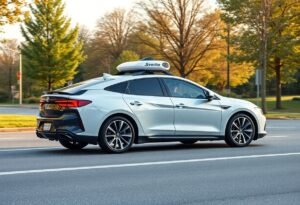The integration of renewable energy with smart technology is revolutionizing the energy sector. This innovative synergy not only enhances efficiency but also plays a crucial role in achieving sustainability goals and reducing carbon footprints.
Enhancing Energy Efficiency Through Smart Systems
The combination of renewable energy sources with smart technology significantly boosts energy efficiency. Smart technologies, such as Internet of Things (IoT) devices and advanced analytics, allow for real-time monitoring and optimization of energy use. By utilizing smart meters and grid systems, energy consumption can be accurately tracked, resulting in decreased waste and lower energy costs. For instance, smart grid technology enables utilities to balance electricity load dynamically, ensuring that energy produced from renewable sources like solar or wind is effectively distributed to meet consumer demand.
Reducing Carbon Footprints
Incorporating renewable energy solutions reduces reliance on fossil fuels, consequently decreasing greenhouse gas emissions. The integration of smart technology facilitates this transition by managing energy flows and encouraging the use of cleaner energy. For example, smart thermostats help automate energy use in homes, leading to enhanced comfort and significant reductions in energy consumption. By engaging with smart technologies, households and businesses can support the transition to a more sustainable future while benefiting from lower operational costs. These efforts contribute to the global objective of combating climate change.
Empowering Consumers with Energy Management Tools
Smart technology empowers consumers by providing them with tools to manage their energy consumption. Users can monitor their energy usage patterns through dedicated apps, allowing them to make informed decisions about their energy consumption. This empowerment leads to increased awareness of energy efficiency practices and encourages individuals to shift their habits toward more sustainable choices. Furthermore, incentives like rebates for renewable energy installations and energy-efficient appliances motivate greater participation in the renewable energy ecosystem.
Facilitating the Growth of Smart Cities
The integration of renewable energy and smart technology is crucial in the development of smart cities. These cities leverage data and technology to enhance urban living. By implementing renewable energy sources alongside smart technology infrastructure, urban areas can ensure efficient resource management and sustainability. The deployment of smart lighting systems powered by solar energy, for instance, exemplifies this innovation. Such solutions lead to reduced energy costs, lower carbon emissions, and improved quality of life for residents.
Fostering Innovation and Economic Growth
The merger of renewable energy technologies with smart innovation fosters economic growth. This sector not only creates jobs in technology and engineering but also paves the way for new business opportunities. Startups and established companies are increasingly focusing on developing integrated solutions for energy management that drive innovation. Investments in this sector promote research and development, thereby yielding future advancements that will benefit society as a whole.
Boosting Grid Reliability and Resilience
Finally, the combination of renewable energy and smart technology significantly enhances grid reliability and resilience. Smart grids can quickly adapt to fluctuations in energy production and demand, minimizing the impact of outages caused by natural disasters or other disruptions. Renewable energy sources, when paired with smart forecasting tools, can ensure a steady supply of energy even under challenging circumstances. This resilience not only secures energy supply but also builds trust with consumers and businesses alike.
Disclaimer: The content provided is for informational purposes only and should not be considered as professional or financial advice.





















